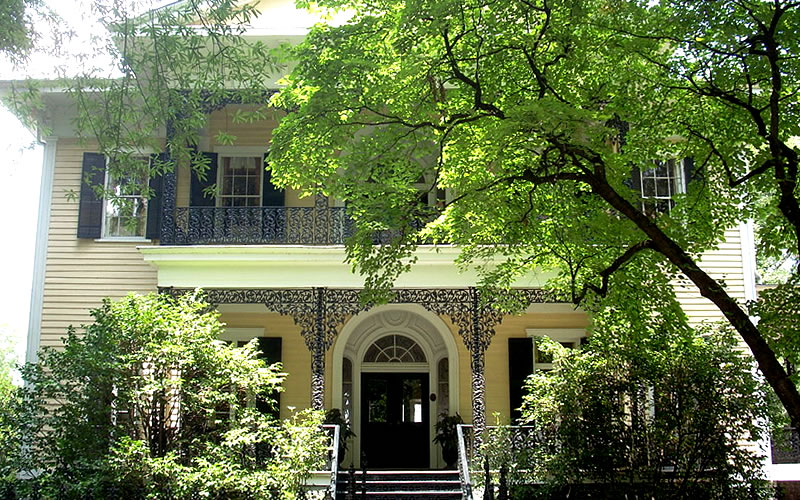NEWS: Reviewing the 2018 session: What’s done and what’s not finished
COMMENTARY, Brack: How we pick lieutenant governors is going off the rails
SPOTLIGHT: The S.C. Education Association
MY TURN, Warren: “We deserve better from our leaders”
MY TURN, Moore: Will utilities strip ratepayers of cost-savings amendment?
FEEDBACK: Ready, get set, vote!
MYSTERY PHOTO: Grand old Carolina house
S.C. ENCYCLOPEDIA: Carolina I-house
NEWS
NEWS: Reviewing the 2018 session: What’s done and what’s not finished
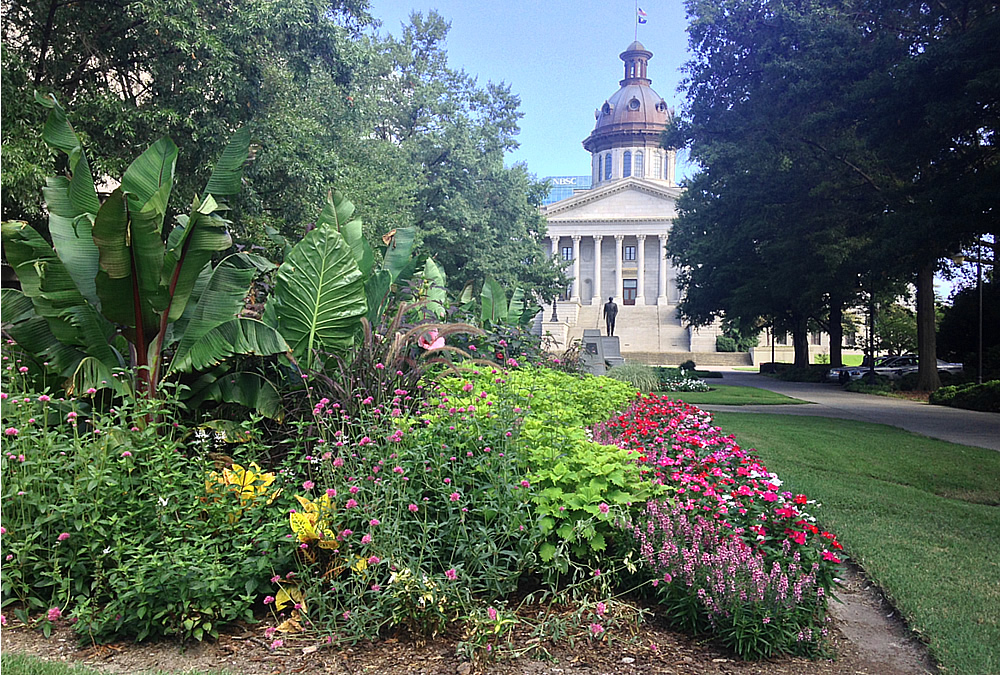
By Lindsay Street, Statehouse correspondent | The second year of the biennial session wrapped up Thursday with some big items left undone, including funding state government and lawmakers’ response to the $9 billion nuclear fiasco that sucked oxygen from the Statehouse for months.
But that’s not to say nothing got done. Since session reconvened in January, more than 60 pieces of legislation passed — and that’s not including the flurry of bills approved this week.
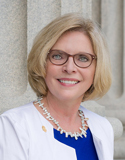
“Tensions were high but, all in all, it was a good session. The Senate ended singing ‘Kumbaya’ and we were all friends when we walked out the door, but the House wasn’t necessarily happy with us,” S.C. Sen. Katrina Shealy said. She said the number of unfinished House bills was the reason for the discontent.
The Lexington Republican said she was pleased with a last-minute Senate passage of a voter referendum to change how South Carolina selects its chief of public education and several child-focused bills. But, she noted, there are some big items left on lawmakers’ agendas.
“We’re not finished,” she said.
Here’s a look at the good, bad and the ugly from the 2018 legislative session.
Nuclear issues still on the table
![]() The House and Senate were unable to agree for much of the session on how to respond to the failed V.C. Summer nuclear reactor project in Fairfield County. The public-private utility partnership saddled S.C. Electric and Gas customers with an 18 percent surcharge on bills and cast uncertainty on the fate of Santee Cooper.
The House and Senate were unable to agree for much of the session on how to respond to the failed V.C. Summer nuclear reactor project in Fairfield County. The public-private utility partnership saddled S.C. Electric and Gas customers with an 18 percent surcharge on bills and cast uncertainty on the fate of Santee Cooper.
Both bodies passed legislation, but were unable to come up with a compromise on items such as how much of the surcharge should be repealed. The House refused to settle for anything less than repealing the full amount — which Gov. Henry McMaster said was the only option he would not veto.
On the last day of session, the Senate voted to repeal the Base Load Review Act, which allowed SCE&G to preemptively raise rates for the nuclear project, and strengthen the state utility watchdog. Those items will need to be taken up by the House at a later date, which can be done when lawmakers return for two days at the end of this month and for another two days at the end of June.
Government operations
![]() During the session, the General Assembly passed three bills restructured how government operates:
During the session, the General Assembly passed three bills restructured how government operates:
- 4977 puts the governor and lieutenant governor on the same ticket;
- 805 created the Children’s Advocacy Department, an umbrella agency designed to act as a watchdog over all child services offered through state government; and,
- 3146 would put a question to voters in November that could change the state superintendent of education from an elected position to a gubernatorial appointment. The governor still needs to sign this bill into law.
Environment
![]() Offshore drilling, a prohibition on local governments banning plastic bags, expiration of the Conservation Bank — those were just some of the bills this year that touched on environmental matters.
Offshore drilling, a prohibition on local governments banning plastic bags, expiration of the Conservation Bank — those were just some of the bills this year that touched on environmental matters.
Conservation Voters of South Carolina Executive Director John Tynan said the defeat of the ban on plastic bag bans by local governments and permanent reauthorization of the Conservation Bank were big wins.
“Conservation champions successfully fought back against attacks on home rule and efforts to strip communities of the ability to find local solutions to local plastic problems,” Tynan said of the proposed ban on bag bans, H. 3529.
“We saw collaboration and compromise work on numerous fronts to maintain or improve good conservation policies — maintaining the critical ‘no seaward movement’ policy for the coastal baseline related to shoreline management, improving the Solid Waste Management Act with the support of a strong coalition of stakeholders, and passing anti-litter and solar habitat legislation.”
A bill to encourage native habitats to be installed around solar fields passed both bodies but has amendments pending in the House. The House will need to concur with the Senate or hash it out in conference before sending the bill to the governor’s desk. Any bill in conference prior to end of session maybe hashed out in the two two-day sessions this month and next.
The General Assembly did not take any action on offshore drilling this session, but that isn’t bad news as offshore drilling opponent Frank Knapp sees it.
“The good news is that the organizations opposed to drilling and testing not only successfully staved off the proponents but used the process to educate legislators about how drilling and seismic testing threatened our pristine coastline and local economy,” Knapp said.
Education
![]() Here are two of the main education-focused bills passed this session, both of which are awaiting McMaster’s signature:
Here are two of the main education-focused bills passed this session, both of which are awaiting McMaster’s signature:
- Codification of the Exceptional Needs SC program ( 4077), which gives tuition breaks to parents and caregivers who have enrolled a student at a private school to meet the student’s special-needs education; and,
- Mandatory dyslexia screening ( 4434).
Health care
![]() Opioids and opioid addiction has dominated national news, and state lawmakers responded with several bills of their own aimed at the crisis.
Opioids and opioid addiction has dominated national news, and state lawmakers responded with several bills of their own aimed at the crisis.
One new law authorizes pharmacists to dispense opioid antidotes to certain community organizations (H. 4600); another, more recently passed bill, requires opioid addiction education in high school (H. 3820). The latter still needs a signature from McMaster.
Health care professionals are lauding a bill that expands the scope of advanced practice registered nurses in the state, and allows them more geographic freedom from an overseeing physician. The approved bill also is on McMaster’s desk.
“It was a long, arduous debate over several years, and this meaningful change will improve access to care while moving to allow advanced practice registered nurses to practice at the top of their licenses,” S.C. Hospital Association’s Schipp Ames told Statehouse Report.
Amy Young of Ridgeville, a nurse practitioner, heralded the General Assembly’s bill.
“(We) have finally won the right to join our colleagues across the United States to have expanded practice privileges in accordance with our education and training,” she said. “By reducing barriers for Nurse practitioners to practice, South Carolina will strengthen the health care workforce and improve patient outcomes for our underserved and vulnerable populations.”
Women’s health was another big issue during the session from several bills aimed at limiting abortions in the state to a bill that will ease workplace demands on a pregnant woman. The session ended on a high-note for South Carolina Women’s Rights and Empowerment Network, which successfully fought lawmakers’ attempts at restricting abortions in the state. In the waning days of session, the abortion debates were finally silenced after a Democratic filibuster in the Senate. The Pregnancy Accommodations Act passed both bodies and awaits signature from the governor. WREN called it an “epic victory” in a mass email to subscribers.
Business
![]() Chickens, liquor and nuisance lawsuits took up valuable debate time on the Statehouse floor this session.
Chickens, liquor and nuisance lawsuits took up valuable debate time on the Statehouse floor this session.
- The so-called chicken bill ( 3929) was passed into law. The legislation only allows neighboring residents to contest a chicken farm being erected.
- In that same vein, the General Assembly passed an automatic-stay law ( 105), which requires judges to offer a ruling on a challenged project in less than 90 days, and a new law that says existing manufacturers cannot be sued by new neighbors for being a nuisance (H. 3653).
Tynan said those laws were about “giving polluters an easier path to cause environmental harm with little consideration to health and quality of life of nearby communities.” The S.C. Chamber of Commerce was asked for comment on this story but did not provide one.
Another business item was keeping the number of stores per liquor license to three in the state (H. 4729), which passed into law.
Still on the table
![]() The General Assembly will return May 23 and 24, and June 27 and 28 to hash out unsettled issues from the session. Read the “sine die” resolution.
The General Assembly will return May 23 and 24, and June 27 and 28 to hash out unsettled issues from the session. Read the “sine die” resolution.
The largest unsettled issue is the $8.2 billion spending bill, which includes amendments that would give teachers raises and remove solar net-metering caps. The budget is in conference as a select group of House and Senate members hash out amendment details. The conference committee will meet next week and is expected to have a resolution by May 23, sources say.
The chambers are also expected to take up a solution for the nuclear fiasco in the May and June mini-session. With legislation passed and yet hung up on amendments, it is unclear how lawmakers will respond, if they are able to come to an agreement.
Another item that identified to be settled during this time is the issue of conforming the state tax code to the federal code. The move would raise taxes, so the House leadership put forth a bill that would reinstate the personal exemption. H. 5341 passed the House and is now in Senate committee.
- Have a comment? Send to: feedback@statehousereport.com
BRACK: How we pick lieutenant governors is going off the rails

By Andy Brack, editor and publisher | The new way South Carolina picks its lieutenant governor has gone off the rails.
 For years, the governor and lieutenant governor campaigned for office separately, which occasionally led to the odd situation of different parties holding the offices, instead of the lieutenant governor being a junior governor and part of the governor’s team.
For years, the governor and lieutenant governor campaigned for office separately, which occasionally led to the odd situation of different parties holding the offices, instead of the lieutenant governor being a junior governor and part of the governor’s team.
In the 2012 general election, 56 percent of voters approved a constitutional referendum to allow the lieutenant governor to be elected on the same ticket as the governor. More than five years later in March, legislators finally enacted legislation to make it happen.
The new law makes sense. If something ever happens to the governor – such as being named an ambassador or presidential cabinet secretary – then the governor-to-be automatically will be from the same party as the just-departed governor that the people elected.
More than likely, most folks who pay attention to this stuff probably assumed gubernatorial candidates would pick running mates after the primary election determined each party’s nominee. That’s how it works in federal politics as presidential candidates name running mates after primaries and generally at party conventions. With much hullaballoo.
In South Carolina, a different paradigm has emerged, even though candidates aren’t required to name running mates until August. The reality finds running mates being announced by some candidates before primaries as a way to appeal to a wider swath of voters. Incumbent GOP Gov. Henry McMaster, a longtime politico trying to survive in the Age of the Upstart, named his running mate, Upstate newcomer Pamela Evette, early so she could get to know voters and he could try to thwart a voter climate that distrusts insiders.
![]() Then came Democratic candidate Marguerite Willis of Florence, a seasoned lawyer who named state Sen. John Scott, D-Richland, as her running mate. She got insider kudos for having a ticket of diversity – a white woman outsider balanced by a respected veteran black politician.
Then came Democratic candidate Marguerite Willis of Florence, a seasoned lawyer who named state Sen. John Scott, D-Richland, as her running mate. She got insider kudos for having a ticket of diversity – a white woman outsider balanced by a respected veteran black politician.
And now comes the two other Democrats seeing to be governor — Rep. James Smith of Columbia and Phil Noble of Charleston. Smith has picked Rep. Mandy Powers Norrell, a prominent Lancaster Democrat who practices law. Noble chose Grand Strand resident Gloria Tinubu, a two-time congressional candidate and former member of the Georgia legislature.
None of the other Republican candidates – Lt. Gov. Kevin Bryant of Anderson, former Lt. Gov. Yancey McGill of Kingstree, Mount Pleasant lawyer Catherine Templeton or Greenville businessman John Warren – have announced a running mate.
But what the other four candidates have done is troubling because they’ve taken away their opportunity to pick a running mate from the very people who have been racing across the state talking with people before primaries – their gubernatorial challengers.
If Smith wins, for example, he can’t now pick Willis or Noble. The same goes for the other two. And if McMaster wins his primary, he now can’t keep Bryant, who is growing into his job as lieutenant governor.
Lawmakers privately say that when they changed the law, they envisioned a process like what happens in presidential contests – that the first big decision by the nominee would be to name a running mate. For Barack Obama, who picked former presidential aspirant Joe Biden, the choice worked out. For Sen. John McCain, who picked relatively unknown Gov. Sarah Palin, the choice didn’t work out at all.
Some now say what’s happened with lieutenant governor picks in South Carolina actually might be good because it provides transparency before the primary so voters can know that first big decision early.
But others worry it diverts voters’ attentions away from the gubernatorial candidate who will be the top elected official in the state.
“I’ve been robbed,” one political insider complained.
We agree and note that some people who are working really hard won’t be able to be a running mate because of the way things have played out. While the announced running mates all seem to be good folks, not having current candidates have the chance to be picked for the number two job could be a loss for South Carolina.
- Have a comment? Send to: feedback@statehousereport.com.
SPOTLIGHT
SPOTLIGHT: The S.C. Education Association
 The South Carolina Education Association (The SCEA) is the professional association for educators in South Carolina. Educators from pre-K to 12th grade comprise The SCEA. The SCEA is the leading advocate for educational change in South Carolina. Educators in South Carolina look to The SCEA for assistance in every aspect of their professional life. From career planning as a student to retirement assessment as a career teacher, The SCEA offers assistance, guidance, and inspiration for educators.
The South Carolina Education Association (The SCEA) is the professional association for educators in South Carolina. Educators from pre-K to 12th grade comprise The SCEA. The SCEA is the leading advocate for educational change in South Carolina. Educators in South Carolina look to The SCEA for assistance in every aspect of their professional life. From career planning as a student to retirement assessment as a career teacher, The SCEA offers assistance, guidance, and inspiration for educators.
- Learn more: TheSCEA.org
WARREN: “We deserve better from our leaders”

By John Warren, special to Statehouse Report | I am a businessman and a Marine who firmly believes that we need conservative leaders running our state government who have been successful in the private sector. Our state needs people who don’t just talk about creating jobs, but business leaders who have actually done it. We need people who don’t just talk about standing for the American flag, but people who have fought and have been willing to die for the American flag.
I’m running for governor because I believe we can do a lot better than our current slate of elected officials. While there are some public servants in state government, Columbia is filled to the brim with career politicians and political insiders who are serving themselves and not the taxpayers. We deserve better from our leaders.

After September 11, I felt called to serve our country in the United States Marine Corps, and in 2006, my platoon was deployed to Ramadi, Iraq, to root out Al Qaeda terrorists. I led over 300 combat missions and my platoon was successful in bringing security to a dangerous place.
Just as I followed the call to serve our country in the Marines, I felt called to build a business in South Carolina. In 2010, I founded Lima One Capital that provides lending to real estate investors. Our company employs hundreds of people across the country and we have been recognized as one of the fastest-growing companies in the state. I am proud to say that more than 80 of our employees are based right here in South Carolina.
I now want to embark on a new mission – to serve and lead our state as governor. For far too long, the same types of career politicians and political insiders have run for office in South Carolina. And, for far too long, we have seen meager results.
From Santee Cooper to education to taxes to infrastructure, South Carolina faces significant challenges over the next decade. We need someone who has the leadership skills necessary to take those challenges head on and build a vision for the future of our state.
My mission is to bring the same business and leadership principles that I implemented in building Lima One Capital to transform our state government. It starts with cleaning up the corruption.
The people of South Carolina deserve a governor they can trust. I have proposed a comprehensive ethics plan including term limits for legislators, income disclosures for elected officials and political appointees, a ban of the former agency directors receiving no-bid contracts, and forcing convicted legislators to pay for the special elections to replace them.
Implementing these reforms comes down to leadership, and in my experience as a businessman and a Marine, leadership comes down to three characteristics: character, competence and courage. The character to stand on conservative principles, the competence to do the job well and the courage to fight against the status quo.
We need more elected officials who display and embody those leadership traits – not more pandering, incompetence and bending in the wind. Leadership means making the tough decisions to protect the taxpayers even when the special interests are trying to stop you.
I’m running for governor to fight for the taxpayer and I ask you to join our mission in reforming state government.
John Warren, a former Marine officer deployed to Iraq, is founder and CEO of Lima One Capital, a specialty mortgage finance company that lends in more than 40 states. More: http://warrenforgovernor.com/
EDITOR’S NOTE: Through June 12, Statehouse Report is running opinion pieces by gubernatorial candidates with primary challengers. Five Republicans and three Democratic candidates for governor have been invited to submit messages they want to share with voters.
Recent candidate contributors
- GOP, McGill: South Carolina is worth fighting for (April 19)
- GOP, Templeton: “The called me the ‘Buzzsaw’” (May 3)
- Have a comment? Send it to: feedback@statehousereport.com.
MOORE: Will utilities strip ratepayers of cost-savings amendment?

By Eddy Moore, special to Statehouse Report, originally published 5/9/18 | The House last week passed something so common-sense that you would think it doesn’t need saying: A single sentence in the budget saying that state regulators should require electric utility companies to look for cost savings.
Until now, state legislators seeking utility reforms have not made this basic request and have focused only on the 18 percent portion of SCE&G customer bills that relates to charges for the abandoned nuclear project. This new common-sense budget item would broaden the search for customer savings to the other 82 percent of a customer’s bill, starting with the plans utilities make for future power plants.

Under the proviso, utilities would have to consider a range of energy sources to meet future energy needs. That could mean conventional power plants or—to the degree they save money—energy efficiency programs and renewable energy. Any resulting cost savings would pass through to customers. And because the state government itself is a big utility customer, that would help reduce the burden on taxpayers to run the government.
Strange as it may seem, this cost-savings idea was a point of contention among legislators. Without giving any reason, some members immediately voted to table the idea when it came up and then said it was out of order. But after surviving these procedural attacks, common sense prevailed and House members voted to pass it.
If you are thinking “Hey, don’t state regulators already make utilities look for cost savings?” you would be wrong.
In February, SCE&G filed its first 15-year energy plan following its decision to scrap the $9 billion V.C. Summer nuclear project. The plan says SCE&G needs to buy a gas-fired power plant now and will need another one in about five to seven years to meet customer needs. Those plants will cost hundreds of millions of dollars.
When asked whether SCE&G had assessed the possibility of doing more to help customers save energy and delay spending money on the power plants, the company admitted that “SCE&G has not performed such assessments” and that gas-fired power plants were the only option that the company analyzed in its plan.
Almost a year after abandoning the nuclear units, SCE&G has not made a credible, transparent effort to look into less-costly paths forward.
For years, state utility regulators have refused to flex their muscles to require better planning. Two years ago, conservation groups submitted a detailed plan prepared by outside experts that showed ratepayers would save over $200 million if SCE&G improved its energy efficiency programs. State officials dismissed the plan and, in the same proceeding, approved a $831 million increase in the cost estimate for the nuclear units. Conservationists tried again after the Westinghouse bankruptcy, but were ignored.
The House-passed budget language, however obvious it may seem, represents hope for a change in direction. We will see in the next few weeks if common sense survives the backroom dealing on the final budget — or whether some of the same legislators that killed solar legislation earlier this year will also block an attempt to look for customer cost savings.
Eddy Moore, a South Carolina native who served as an administrative law judge in Arkansas, is energy and climate program director with the S.C. Coastal Conservation League.
- Have a comment? Send it to: feedback@statehousereport.com.
FEEDBACK
FEEDBACK: Ready, get set, vote!
To the editor:
Voters in our communities will soon be casting votes in the South Carolina Primary Election. Eligible citizens have until May 13 to register so they can vote in the June 12th Primaries and June 26thPrimary Runoffs (runoff if needed).
![]() Now is also the time to familiarize ourselves with the candidates on the ballot and the offices up for grabs—This year they include Governor and all state constitutional offices, all U.S. and S.C. House of Representatives seats, and numerous other offices, such as county council, probate judge, and register of deeds. Whether you are a college student or senior citizen, a secretary or CEO — Election Day is every voter’s opportunity to weigh in on the issues that matter most to you.
Now is also the time to familiarize ourselves with the candidates on the ballot and the offices up for grabs—This year they include Governor and all state constitutional offices, all U.S. and S.C. House of Representatives seats, and numerous other offices, such as county council, probate judge, and register of deeds. Whether you are a college student or senior citizen, a secretary or CEO — Election Day is every voter’s opportunity to weigh in on the issues that matter most to you.
Candidates selected by state primary voters in June will appear on our November 6th ballots, along with candidates running for nonpartisan offices, such as municipal councils and school boards for all local districts.
As voters, we need to decide who will do the best job for us right here in our communities. Whether we are concerned about public health and education, what jobs are available, the cost of higher education, our children’s safety or national security, few of us will have the opportunity to personally ask each candidate what their plans are for addressing our community’s needs. So, where do we go to find these answers?
For help, head to www.VOTE411.org where voters can access their voters’ guide and candidate and ballot information. The League of Women Voters’ nationwide voter education resource, VOTE411.orgwas created to provide you with your personalized voting guide that includes up-to-date information you need to cast your ballot, including who’s on your ballot, information about voting absentee and what types of identification you will need.
At VOTE411, you can also register to vote, make sure your registration is active and update your registration, if necessary.
These last weeks before Election Day are an important time for all voters to take advantage of every available opportunity we have to learn about the candidates. Voting is the one time when we all have an equal say in standing up for the issues and priorities that matter most to us and our community.
Vote! Our jobs, health, education, families and futures depend on it.
— Barbara Zia and Joan Zaleski, directors, Citizen Education and Voters Service, League of Women Voters of the Charleston Area, Charleston, S.C.
Send us your thoughts
We love hearing from our readers and encourage you to share your opinions. But you’ve got to provide us with contact information so we can verify your letters. Letters to the editor are published weekly. We reserve the right to edit for length and clarity. Comments are limited to 250 words or less. Please include your name and contact information.
- Send your letters or comments to: feedback@statehousereport.com
MYSTERY PHOTO
MYSTERY PHOTO: Grand old Carolina house
Here’s a grand old Carolina house, but where in the world is it? Send your best guess – plus your name and hometown – to feedback@statehousereport.com. In the subject line, write: “Mystery Photo guess.”
Our previous Mystery Photo
In the May 4 issue, we showcased the old Florence County Library on Irby Street in Florence, S.C.
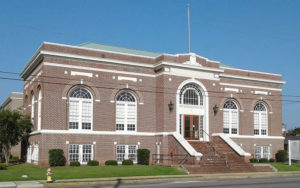 Jay Altman of Columbia immediately recognized the building and recalled: “Francis Marion University actually started in this building. I lived in Florence while attending Francis Marion (during the first four years of its existence (1970-1974) Previously, the school was a two year extension of USC (USC-Florence). The current school started in the basement of the old Florence County Library in the late 1950s before moving to its current location in the early 1960s.”
Jay Altman of Columbia immediately recognized the building and recalled: “Francis Marion University actually started in this building. I lived in Florence while attending Francis Marion (during the first four years of its existence (1970-1974) Previously, the school was a two year extension of USC (USC-Florence). The current school started in the basement of the old Florence County Library in the late 1950s before moving to its current location in the early 1960s.”
Will Breazeale of Las Vegas, Nevada, recalls the old library and tells us it is now a law office.
George Graf of Palmyra, Va., sends along this information: “ According to douggelbert.com, the Florence Public Library, built in 1925, is significant as the first truly public library in Florence and as a fine example of Neoclassical Revival architecture with Beaux Arts influences. The library was designed by the Florence architectural firm of Wilkins and Hopkins, with William J. Wilkins and Frank V. Hopkins as its principals. The first library in Florence grew out of the practice of Florence attorney Belton O’Neall Townsend, who occasionally lent colleagues and friends books out of his law office as early as the 1870s. In 1903 the Florence Civic Improvement Society established a town library in City Hall on Evans Street. Miss Florence Harllee, daughter of William Wallace Harllee, president of the Wilmington and Manchester Railroad, and the person for whom the city was named, served as librarian. Not truly a public library, it was restricted to patrons with a ‘membership ticket.’”
The current public library is on South Dargan Street. Thanks all.
Send us a mystery: If you have a photo that you believe will stump readers, send it along (but make sure to tell us what it is because it may stump us too!) Send to: feedback@statehousereport.com and mark it as a photo submission. Thanks.
S.C. ENCYCLOPEDIA
HISTORY: Carolina I-house
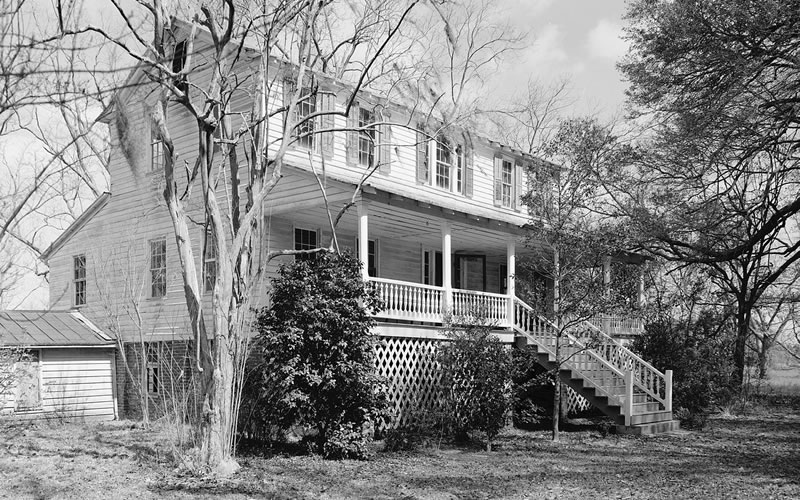
S.C. Encyclopedia | The I-house is a relatively new architectural term. Fred Kniffen first coined it in 1936, when he used it “in the absence of any common term, either folk or architectural,” to describe the house type he identified initially in the “I” states of Indiana, Illinois, and Iowa.
More a description of a house form or shape than a distinct style, “I-house” was not a term used by eighteenth and nineteenth century architects and builders. The distinguishing characteristics are a full two-story height, a one-room depth, and a length of two or more rooms. The I-house conveys a tall, narrow appearance. It is constructed of wood, brick, stone, or log with its entrance on the long side.
Kniffen traced the origins of this house form evolving from the English, single room, end chimney house to full-blown examples in the Middle Atlantic region of Delaware and the Chesapeake by the late seventeenth century. It was carried southward as part of the great mid-eighteenth-century migration along the Appalachian Mountains into the backcountry of the Carolinas. From there it was carried into the Deep South and by way of the Ohio River into the Midwest.
The ubiquitous I-house had become the symbol of economic success in the rural landscape of South Carolina’s upcountry by the middle of the nineteenth century and remained so well into the early twentieth century.
The early I-house had two rooms on the ground floor. One room, the hall, functioned as the kitchen, workroom, or dining room; the other, the parlor, was used for more formal activities. By the nineteenth century and with increased attention to symmetry, a center hall containing the stairway was present in most floor plans. Examples in Carolina typically have three to five windows across the front on the second story; a chimney on either gable end; a front porch; a back porch, which is often enclosed as a lean-to; and/or a kitchen ell added to the rear.
As an occupant’s wealth increased, a simpler house form such as a single-story dogtrot could evolve into an I-house with the addition of a second story, conversion of the breezeway into the hall, and covering the whole with weatherboards. Its tall, shallow form with short spans was easy to construct, provided excellent ventilation through the main rooms, and presented an impressive public face to signal the economic status of the owner.
The architectural historian Michael Southern has argued that the durability of this form through time may in part be attributed to its adaptability to receive detailing and ornamentation from the various popular styles of the nineteenth century, such as the Federal, Greek- revival, Italianate, and even Gothic styles. While retaining a traditional floor plan, the occupants were able to dress up their homes outwardly to indicate that they were attuned to the latest architectural trends. Thus, the Carolina I-house established itself as the signature house form of the upland part of the state throughout the nineteenth century.
— Excerpted from an entry by John C. Larson. To read more about this or 2,000 other entries about South Carolina, check out The South Carolina Encyclopedia, published in 2006 by USC Press. (Information used by permission.)
ABOUT STATEHOUSE REPORT
Statehouse Report, founded in 2001 as a weekly legislative forecast that informs readers about what is going to happen in South Carolina politics and policy, is provided to you at no charge every Friday.
- Editor and publisher: Andy Brack, 843.670.3996
- Statehouse correspondent: Lindsay Street
More
- Mailing address: Send inquiries by mail to: P.O. Box 22261, Charleston, SC 29407
- Subscriptions are free: Click to subscribe.
- We hope you’ll keep receiving the great news and information from Statehouse Report, but if you need to unsubscribe, go to the bottom of the weekly email issue and follow the instructions.
© 2018, Statehouse Report. All rights reserved.


